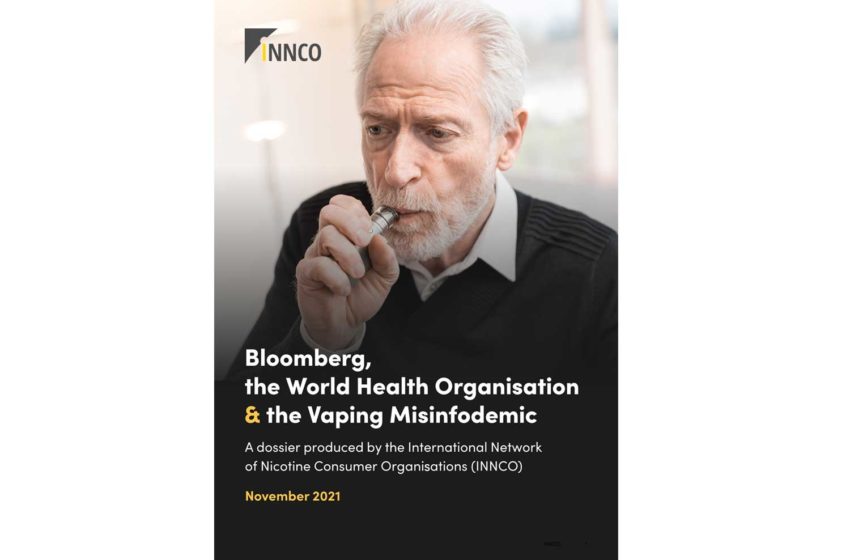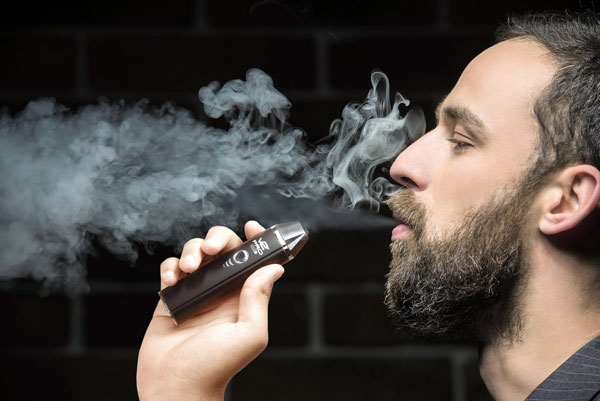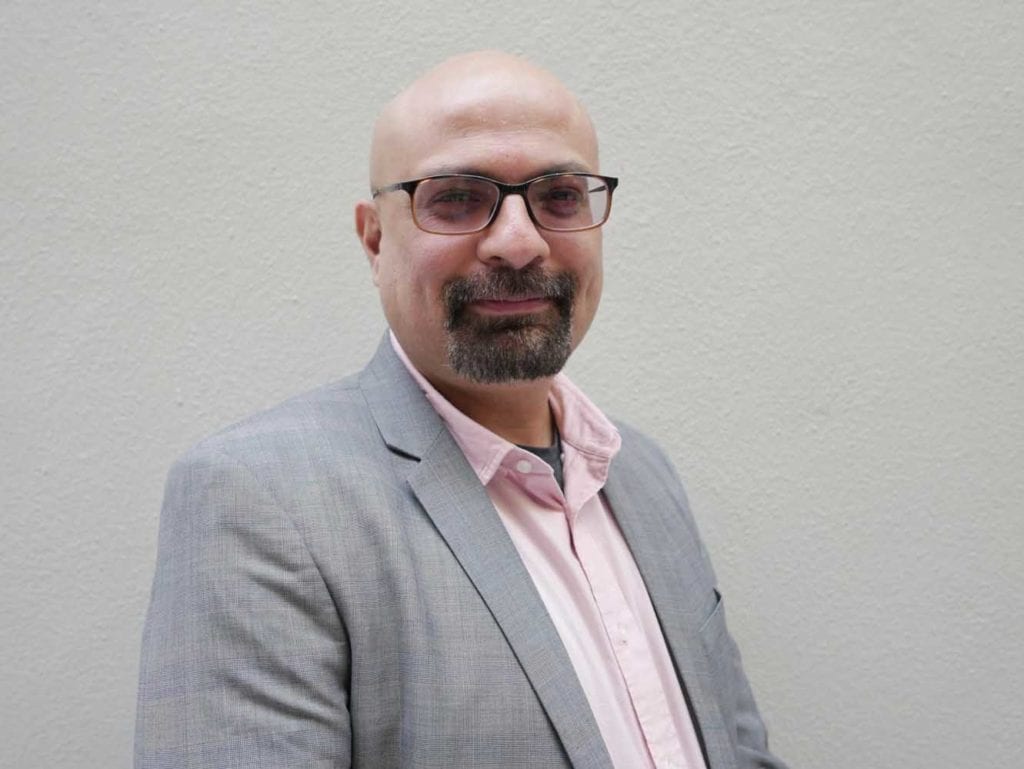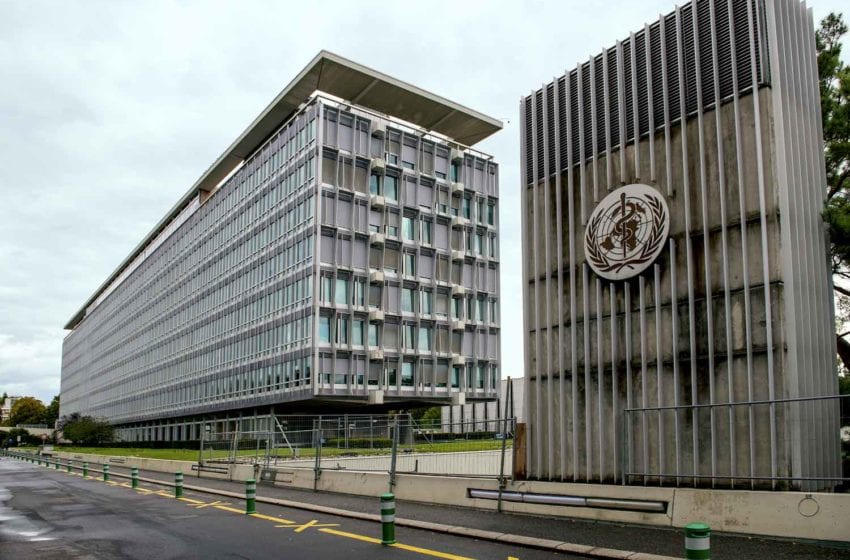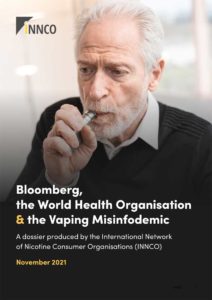 A new report, published today, raises major questions about the anti-vaping arguments and approach of the World Health Organization and billionaire philanthropist Michael Bloomberg.
A new report, published today, raises major questions about the anti-vaping arguments and approach of the World Health Organization and billionaire philanthropist Michael Bloomberg.
The WHO and Bloomberg have both made clear their opposition to safer nicotine alternatives despite growing evidence of lower harm and efficacy for smoking cessation.
The WHO’s tobacco control program is funded in part by Bloomberg Philanthropies. In July of this year, the two parties restated their joint position at the launch of the WHO Report on the Global Tobacco Epidemic, 2021: Addressing New and Emerging Products. In this report, the WHO emphasized that electronic nicotine-delivery systems are “a threat to tobacco control,” are harmful and should be banned or highly regulated. Bloomberg, in his capacity as the WHO Global Ambassador for Noncommunicable Diseases and Injuries and founder of Bloomberg Philanthropies, stated that tobacco companies are marketing new products such as e-cigarettes to “hook another generation on nicotine.”
The International Network of Nicotine Consumer Organizations (INNCO) has now compiled a new dossier, titled Bloomberg, WHO and the Vaping Misinfodemic, containing statements and evidence from healthcare experts, leading academics, politicians, respected journalists and research organizations that question the stance of the WHO and Bloomberg on safer nicotine alternatives to smoking and the relationship between the two parties.
This dossier comes just a week after the U.K. Department of Health and Social Care announced that e-cigarettes could be prescribed on the National Health Service, a world first. That move by the U.K. government provoked significant public debate around the polar opposite views toward safer nicotine alternatives, such as vaping, held by the British government and the WHO.
The dossier also comes as the Parties to the WHO Framework Convention on Tobacco Control convene to discuss tobacco and nicotine policy.
The outcomes from COP9 discussions will determine how international tobacco control policies are implemented at a country level across the globe to address the fact that 1.1 billion people still smoke worldwide and 8 million die every year from tobacco-related diseases.
The dossier highlights nine reasons why serious questions need to be raised about the WHO’s and Bloomberg’s outright opposition to safer nicotine alternatives to deadly smoking. High on the list is their failure to distinguish between smoking addiction and nicotine dependence.

They are shifting the harm focus from smoking to tobacco to nicotine—where it obviously doesn’t belong.
Charles A. Gardner, executive director, INNCO
“Effectively, through this failure, they are shifting the harm focus from smoking to tobacco to nicotine—where it obviously doesn’t belong—nicotine does not cause cancer, heart or lung disease. Smoking does,” says Charles A. Gardner, executive director at INNCO.
This is backed up in the dossier by expert views on the profound difference between cigarette smoke and the drug, nicotine, including those expressed by Jamie Hartmann-Boyce, senior research fellow in health behaviors at the University of Oxford; John Britton, emeritus professor of epidemiology at the University of Nottingham and special advisor to the Royal College of Physicians on Tobacco; Adam Afriye MP; and a joint statement by 15 past presidents of the world’s top professional society in the field of tobacco control, the Society for Research on Nicotine and Tobacco.
The report also scrutinizes the WHO’s role in COP events, with evidence suggesting that it is very controlling in terms of the agenda and attendance. Unlike COP26, these tobacco control COP meetings are described as “all but excluding the media,” “well-known for the routine ejection of the public from proceedings” and “notoriously secretive.”
The dossier also reports on claims that the only tobacco control nongovernmental organizations (NGOs) allowed to attend are those who subscribe to the WHO’s tobacco harm reduction denialist stance. The U.K. Parliament’s All-Party Parliamentary Group for Vaping recently issued a warning about the participation at COP9 of The Union, a major global NGO funded by Bloomberg Philanthropies.
“The Union [International Union Against Tuberculosis and Lung Disease] recently issued a major report titled Where Bans are Best: Why Low- and Middle-Income Countries Must Prohibit E-cigarette and HTP Sales to Truly Tackle Tobacco. The Union is one of Bloomberg Philanthropies’ two top tobacco control grantees—the other is the U.S.-based Campaign for Tobacco-Free Kids,” says Gardner.
“We are a good case in point. INNCO, which represents and supports the rights of 98 million adults worldwide who use safer nicotine to avoid toxic forms of tobacco, has once again been denied observer status at COP9 (as it was denied at COP8 and at COP7).”
The Bloomberg, WHO and the Vaping Misinfodemic report calls for:
- Governments around the world to collectively challenge the WHO’s and Bloomberg’s current prohibitionist position on safer nicotine alternatives and to demand to know why, in the face of 8 million tobacco-related deaths every year, the tobacco control field is the only field of public health that rejects harm reduction
- The formation of a global independent Tobacco Harm Reduction Working Group comprised of independent scientists, global health experts, specialist academics and people who use safer nicotine (ex-smokers)
- Withdrawal of funding from and/or boycott of future Conference Of Parties (COP) tobacco control meetings until the WHO considers the overwhelming evidence that safer nicotine alternatives such as vapes, snus, nicotine pouches and heat-not-burn help smokers quit and save lives
- Complete transparency in all tobacco control funding, grants and collaborations involving the WHO and Bloomberg
- A full independent and international review into current and past tobacco control dialogue between Bloomberg Philanthropies, Bloomberg-funded NGOs and national governments in low-income and middle-income countries (LMICs) following allegations in the Philippines that the country’s Food and Drug Administration received funds from Bloomberg groups to support the implementation of the national tobacco control program
- A complete review of the WHO’s public web-based Q&A on e-cigarettes, which has been described as “astonishingly bad.”
The dossier also spotlights the EVALI (e-cigarette, or vaping, product-associated lung injuries) crisis of 2019. The U.S.-only outbreak of lung injuries caused by bootleg THC (cannabinoid) vape oils “cut” with one or more adulterants was wrongly reported to be caused by legal nicotine vaping.
According to the report, the EVALI outbreak triggered Bloomberg Philanthropies to invest $160 million over a three-year period to prohibit all e-cigarette flavors other than tobacco flavor. EVALI is also still incorrectly referenced by the WHO in its Q&A on vaping products in response to the question as to whether e-cigarettes cause lung injuries.
However, by early 2020, U.S. authorities identified vitamin E acetate, a cutting agent used in some bootleg THC vaping oils—mainly in U.S. states where cannabis remains illegal—as the primary cause of the outbreak.
As reported in the dossier and which escaped the attention of the world’s media, last month, 75 global experts with no tobacco industry ties, including seven individuals who have served as president of the Society for Research on Nicotine and Tobacco, wrote to the CDC’s director asking her to change the name “EVALI” because it fails to alert THC vapers to their potential risks and it misleads smokers and nicotine vapers to believe e-cigarettes were the cause.
“I’ve spent 30 years in global health, including three years as a senior advisor on research to the WHO. For most of my career, I worked on HIV, TB, malaria, dengue, rabies, nutrition and child health issues. So, I’ve never seen anything as crazy as what’s happening now in tobacco control. What troubles me is how few people outside of my ‘little’ echo chamber, the community of millions of ex-smokers who use safer nicotine, knows what’s going on,” says Gardner.
“There are 1.1 billion smokers now in the world, a situation that has barely changed in the last 20 years. The anti-harm reduction conservatism of the WHO and Bloomberg is not working.
“That’s why we are calling for a global response in the form of a tobacco harm reduction working group and international governments collectively questioning and challenging the WHO[‘s] and Bloomberg’s prohibitionist and evidence-denialist approach to safer nicotine. Because we are ex-smokers who use safer nicotine. We see what’s happening, and we have great empathy for smokers and ex-smokers who vape.
“The goal is simple. Save lives. Only the starting assumptions and strategies to get there differ. These can be debated. But this debate is unethical if it does not include people who have, themselves, made the transition from smoking to not smoking, using tobacco harm reduction products (nicotine patches, nicotine gum and lozenges, nicotine vapes, nicotine pouches, snus and HTPs).”
“Our future policy recommendations will focus on the need to change research priorities, just as HIV/AIDS activists sought to do in the 1990s. Global tobacco control research priorities today are skewed toward finding harms of alternative nicotine products while ignoring—or not even exploring—benefits, in particular the potential therapeutic benefits of nicotine. The health benefits of medical marijuana are now recognized because of research. The potential therapeutic benefits of psilocybin are now being explored (e.g., for PTST and even for smoking cessation). However, research to explore those potential benefits was locked in amber for 30 years because of prohibitionist drug laws.”

